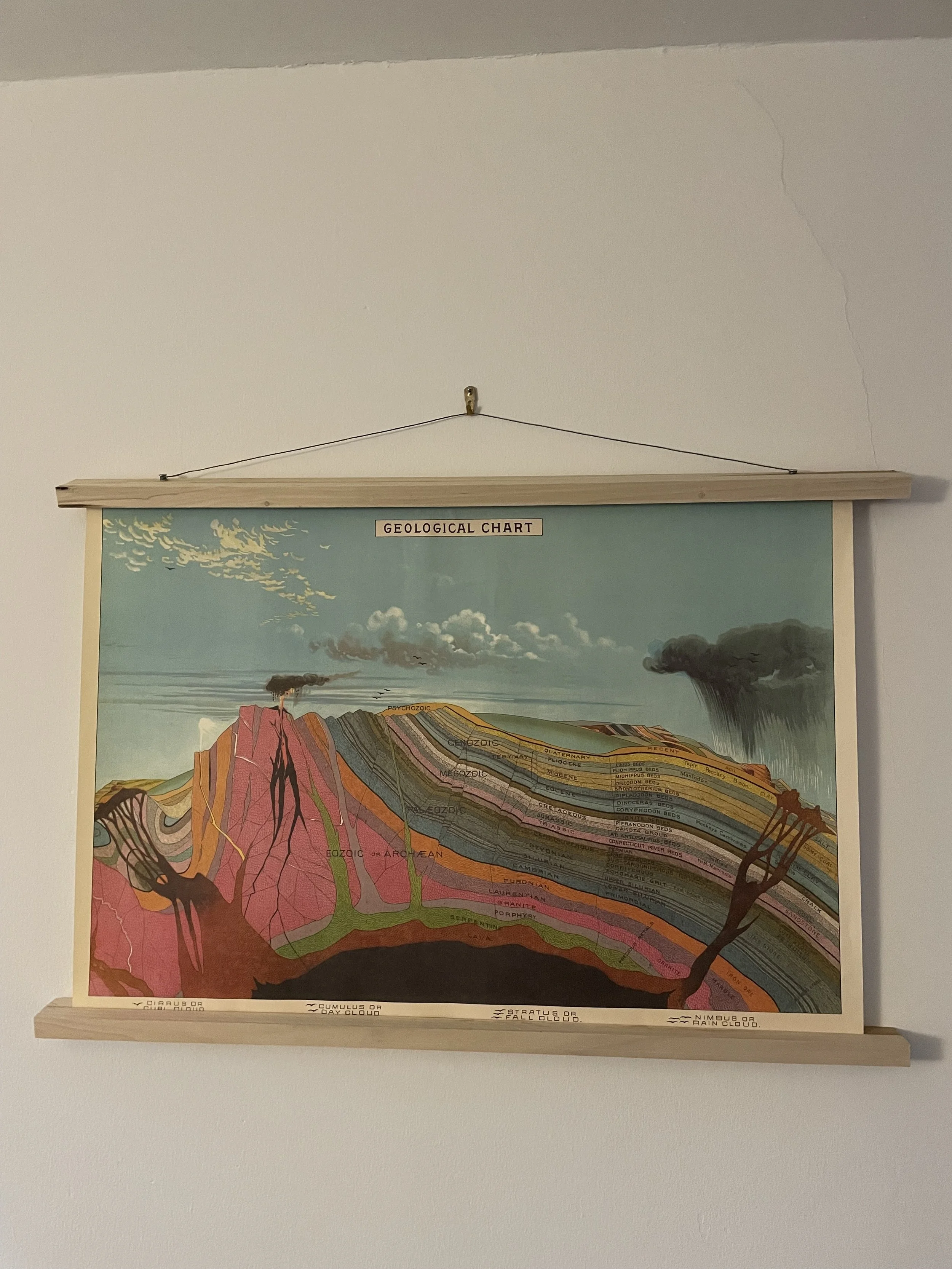If We Build It…
I walked into Paul O'Connor's shop at Vassar College in September 2013 to interview for a position listed as "Tour Guide/Technical Trainee." Truthfully, I wanted to get a job as an Admissions Tour Guide but they weren't hiring so I figured I'd check out the drama department's tours. Paul, the Technical Theater Director, quickly clarified that there were never any tours to give—he had no clue why that was in the job title. The job was to join his crew building scenery and props for all the department's productions. I liked his vibes and he had good music playing, so I decided to give it a shot.
"Behind the Scenes... Literally" in Paul's shop (feat. 18 year-old Jake)"
I eagerly returned to work with Paul every semester I spent on campus. His skill as a teacher and his presence as a leader were only outmatched by the joy he brought into the shop every day. Over and over again he would show how grateful he was to be there with us. I could write a whole newsletter about what I got from Paul O'Connor—maybe I will!—but this isn't that.
Key Questions for Construction
Among my many cherished takeaways, there's one I want to highlight here: a deeper level of comfort with, and excitement about, construction. Asking and answering questions like, What's our vision for what we're creating? What materials do we need? How will they fit together? How much load will it bear? How will we transport, store, and/or repurpose it?
During construction, questions inevitably arise that you didn't predict. While you problem-solve with what's currently available, you learn lessons that are applicable to future builds.
And at the end of it, there's your new creation. It may look exactly how you envisioned it; it may have changed drastically along the way. You can touch it, photograph it, paint it if you'd like, and put it to use. Completing a build is deeply satisfying. I absolutely caught the carpentry bug and I've continued practicing since leaving Paul's shop. However, what I now value even more is learning a constructivist mindset.
Some of my favorite recent carpentry projects:
A Constructivist Approach
I am borrowing the term "constructivist" from Olúfẹ́mi O. Táíwò’s Elite Capture. In this book, Táíwò unpacks how the once radical concept of "identity politics" has been captured and stripped of its political substance by elite interests. He then offers "constructive politics" as a more fruitful way toward a better world. If identity (or "deferential") politics is about passing the mic to the most marginalized people in the room, constructive politics is about reconstructing the whole house. It asks "that we build the kinds of rooms in which we can sit together, rather than merely seek to navigate more gracefully the rooms history has built for us" (84).
Applying Constructive Politics to Life Coaching
A constructive approach is demanding. It requires us to learn new skills and build new things, things that might not yet exist. When doing things we've never done before, coaching proves highly valuable. Our brains—constantly trying to protect us—spring into action. They find distractions, magnify our past mistakes, freeze us in analysis, and project visions of future failure. That's all normal! And, ultimately, it doesn't matter that much. What matters is what we do (and don't do).
Coaching gives us methods and tools for moving through this anxious brain activity so that we can take the actions we've seen that will build toward our vision. And, crucially, to do it in ways that feel fulfilling, sustainable, and authentic.
Creating Small Sytems to Influence Big Systems
I am not a movement organizer. I have played a role in organizing on small scales before and I love to read writing by organizers and about organizing. In Elite Capture, Táíwò discusses one role of construction in organizing: "Often when we organize, we build a smaller system of our own within the overall system we live in that is influential enough to change the whole system's behavior" (103).
In this way, we can view coaching as a kind of intra-personal organizing. I support clients to build small habits/perspectives/tools of their own within the overall system of their lives that can influence their behavior. We ask and answer questions like, What would you love to have at the end of this session? If there were another way to see or do this, what might it be? Given what we've seen, what's the next step to take? What support might you need to be successful? From where can we source that support?
When our behavior changes, so do our interactions with the world. We must hold two truths: 1) by building these small systems, we will not magically transform everything around us; and, 2) our creations can genuinely change the nature of our interactions in ways that open up new possibilities.
Unlock Your Wisdom
Building things also offers us ample opportunities to unlock our own wisdom. Each of us has this, but too few of us get chances to let that wisdom breathe, metabolize, and guide us toward something. If a spark of our wisdom lands on some kindling and small flames start to burn, coaching is like blowing a bellows into the base of that fire. It's an infusion of oxygen, of new possibility, that can change what's occurring in real time.
If you want to make my day, tell me about something you've built and the lessons you learned while doing it. Or, better yet, something you're curious about building...










